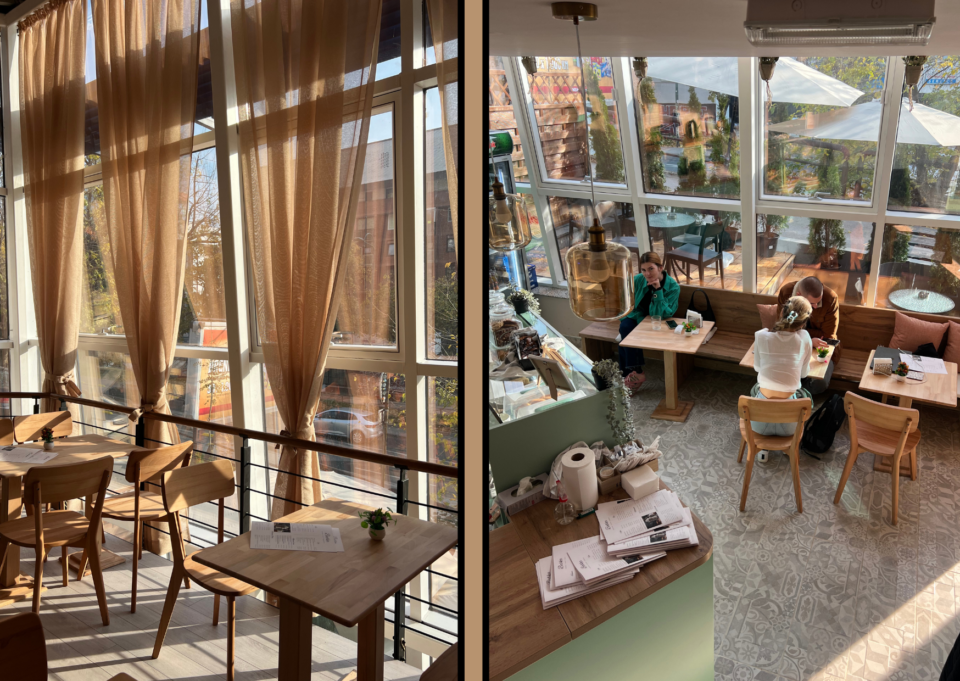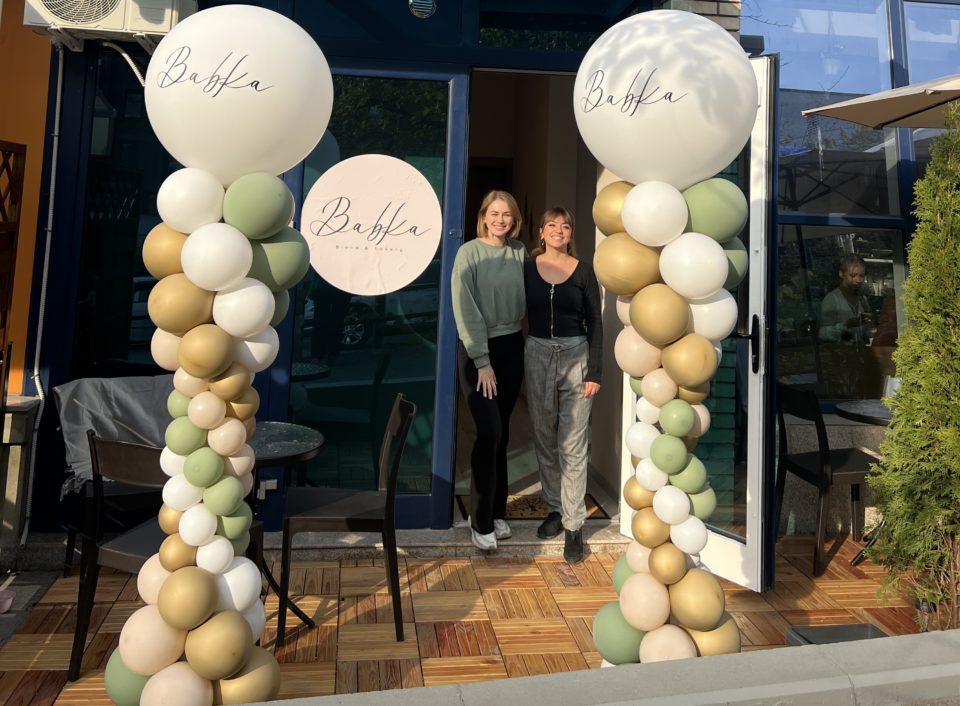
Fate is bringing foreigners to Bosnia and Herzegovina (BiH).
Despite administrative and other difficulties, some have started their own businesses, such as bakeries, travel agencies, and consulting companies. Behind each of these entrepreneurial stories is, as they say, “love at first sight,” “a dream come true,” but also a belief in the potential of BiH.
Nermin “Numa” Numić, a Sarajevo native, left BiH during the war. He lived in Germany, Austria, the Czech Republic, and South Africa, where he met his future wife Kathi, who is from Germany. He then decided to return home with a broadened perspective.
“I started to see the beauty of the country I used to take for granted—the mountains, cultural diversity, architecture, and language. For example, a girl in a headscarf is best friends with a girl in a miniskirt,” he explains.

He showed Kathi the country and she fell deeply in love with it. Frustrated that most tourism packages focused solely on Bosnia’s wartime history, Kathi came up with the idea of launching a travel agency that offered something different: storytelling tours, cooking classes, wine-tasting experiences, and off-the-beaten-path adventures for German and English-speaking tourists. They founded the Cheyf agency, which operates with a small but growing team. They hope to make the agency internationally known so they can bring even more tourists to the country and show them the true beauty and diversity of BiH.
“She’s an introvert and I’m an extrovert. She holds me back from rash decisions and I calm her down. She has also given me some German perspectives. It’s hard to be both a couple and business partners, but we’ve made it work really well. Kathi is the reason that we have our business today,” Numa reflected, expressing his deep appreciation for Kathi.
The only problem he says he’s encountered conducting business in BiH is bureaucratic inefficiency: “Everything takes time and extra money, and it has really taken up a lot of time that we could spend building the business.” Numa hopes for greater digitalization and more platforms tailored to entrepreneurs, which would facilitate the process and attract local and foreign entrepreneurs to start businesses in BiH.
A Turkish Dream Come True in Sarajevo
Hiba Altayeb dreamed of starting a bakery in Istanbul with her friend Merve Büyükbayrak. However, they were living in different cities – Ankara and Istanbul – so this dream was delayed. After Merve moved to Sarajevo to pursue a master’s degree and reconnect with her roots, Hiba visited her in September 2023. During her stay, she fell in love with the people, the scenery, and the hospitality. So, in February 2024, when she had the opportunity to work remotely as a humanitarian, she moved to Sarajevo almost immediately to open a bakery. However, navigating the procedure for setting up a foreign-owned business wasn’t easy.
Registering the company, securing a location, obtaining working and residency permits, and coordinating with food safety agencies took months. “There was no clear checklist, and you have to ask around a lot,” Hiba and Merve explained.

Despite the hurdles, Babka Blend and Bakery opened in Sarajevo in November 2024, and everything became easier from there. Known for its signature babka, cinnamon rolls, and cheesecakes, the bakery quickly became popular.
Their goal is simple: “[we] want to make people happy and satisfied, so the bakery is always using high quality ingredients like Belgium chocolate. The products have the best quality and freshness, and portions are big.” The bakery’s menu is not entirely foreign for Bosnians, since Turkey and Bosnia share similar culture and cuisine. Locals tell them the bakery is cozy and charming and that they love the food, adding that they have a lot of regulars, and it’s really heartwarming for them.
“Give Bosnia a Chance”
Kailash Kalyani lived in Germany with his wife and children, working as an IT consultant, until his wife was offered a job in BiH. In order to be with his family, but also, he says, seeking a slower pace, he moved to BiH, where he founded his one-man IT firm.
From Kailash’s experience, the number of expats living in Bosnia is still low compared to other European countries, and most work for international organizations and embassies. He has yet to meet any other founders of tech start-ups, and acknowledges systemic challenges including the limited e-commerce infrastructure, outdated payment systems, and bureaucratic sluggishness.
“Banking is horrible and customer service is nonexistent,” notes Kailash. He recalls trying to open a PayPal Business account and running into trouble since credit cards are difficult to set up in BiH. Yet, he finds the trade-off worth it: “It’s affordable, safe, and close to where my clients are. People are hardworking, and the talent pool here is underutilized.”
Setting up the company required a lot of legal assistance and took considerable time, but once established, the business model allowed flexibility. Despite the challenges he mentioned, Kailash remains optimistic and suggests international customers should give Bosnia a chance: “If the Bosnian government could make some changes to structural aspects and make the economic sector and bureaucracy more friendly to foreign and international business owners, it could be a regional tech hub.”
Despite their very different backgrounds and careers, all three entrepreneurs mentioned similar challenges: redundant bureaucratic and administrative systems, and the lack of digital services. Registering a company or getting a residence permit is rarely straightforward and always time-consuming. Reliable customer service is elusive, and taxation rules are complex. Still, their stories are not those of frustration, but of persistence. One consistent theme is how welcoming locals have been.
Hiba and Merve note that despite not being able to speak Bosnian fluently, they feel at home. “The community has embraced the bakery like it’s always been here.” Numa and Kailash echo this sentiment, pointing to regular customers, supportive neighbors, and a general curiosity about new ideas.

These businesses not only diversify the local economy but also build a richer, more inclusive narrative about what Bosnia is and could be. As the country struggles with youth emigration and economic stagnation, stories like these offer a potential boost for both the economy and the country’s international reputation. Foreign entrepreneurs are not only investing in the country but also reimagining what it can offer. As Hiba and Merve point out: “We didn’t come here with a plan. We came with a dream, and Bosnia gave us the space to turn it into something real.”







Clerveus aravna
Good